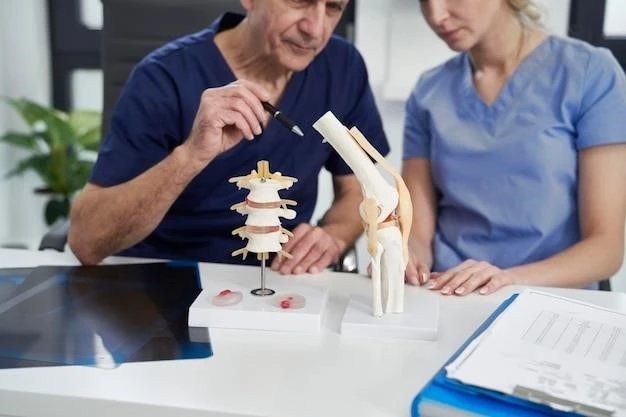Introduction
The internet provides valuable insights into Lowry-Wood syndrome, a rare condition linked to Mental Retardation, Short Stature, and distinctive epiphyseal abnormalities.
The Lowry-Wood syndrome is characterized by unique features such as mental retardation, short stature, and distinct abnormalities in the epiphyses. This rare condition presents challenges but understanding its characteristics is crucial for proper management.
Overview of Mental Retardation Short Stature Wedge Shaped Epiphyses
Lowry-Wood syndrome encompasses distinctive features like mental retardation, short stature, and unique abnormalities in the epiphyses, presenting complex challenges best managed with understanding.
The Lowry-Wood syndrome is defined by a combination of mental retardation, short stature, and peculiar abnormalities in the wedge-shaped epiphyses. Recognizing these distinctive characteristics is vital for accurate diagnosis and tailored management strategies. It is essential to be aware of these key features to provide appropriate care and support to individuals affected by this syndrome.
Characteristic Features of the Syndrome
The distinctive features of Lowry-Wood syndrome include a unique combination of mental retardation, short stature, and specific abnormalities in the wedge-shaped epiphyses. Recognizing these key characteristics is essential for accurate diagnosis and personalized treatment approaches.
Role of Genetics in Mental Retardation and Short Stature
Genetic factors play a significant role in the manifestation of Lowry-Wood syndrome, particularly in the development of mental retardation and short stature. Understanding the genetic underpinnings of this syndrome is crucial for accurate diagnosis and personalized treatment approaches.

Clinical Presentation
Individuals with Lowry-Wood syndrome may exhibit a unique combination of features including mental retardation, short stature, and distinctive abnormalities in wedge-shaped epiphyses. Recognizing these characteristics is crucial for accurate diagnosis and tailored management.
Methods for Diagnosing the Syndrome
Diagnosing Lowry-Wood syndrome involves a comprehensive evaluation of clinical features such as mental retardation, short stature, and specific abnormalities in the wedge-shaped epiphyses. Genetic testing and imaging studies play a key role in confirming the diagnosis and guiding appropriate management strategies.
Management and Treatment
Developing a comprehensive management plan for Lowry-Wood syndrome involves addressing the symptoms and complications associated with mental retardation, short stature, and wedge-shaped epiphyses. Utilizing a multidisciplinary approach in the care of individuals with this syndrome is essential to optimize outcomes and enhance quality of life.
Approaches to Addressing Symptoms and Complications
Managing the symptoms and complications of Lowry-Wood syndrome involves a multidisciplinary approach focusing on addressing issues related to mental retardation, short stature, and wedge-shaped epiphyses. Tailored treatment plans, therapy, and medical interventions can help improve the quality of life for individuals affected by this rare condition.

Prognosis
Understanding the potential outcomes for individuals with Lowry-Wood syndrome, particularly regarding mental retardation, short stature, and wedge-shaped epiphyses, is essential for guiding treatment decisions and offering appropriate support.
Outlook for Individuals with Mental Retardation Short Stature Wedge Shaped Epiphyses
Understanding the potential outcomes for individuals with Lowry-Wood syndrome, encompassing mental retardation, short stature, and unique abnormalities in wedge-shaped epiphyses, is crucial for developing personalized care plans and providing necessary support for improved quality of life.
Research and Studies
Recent research highlights various cases of individuals with Lowry-Wood syndrome presenting with unique combinations of symptoms like mental retardation, short stature, and distinctive epiphyseal abnormalities. Understanding these cases contributes to ongoing studies aimed at improving diagnosis and management strategies for individuals affected by this rare condition.
Current Findings and Ongoing Research Efforts
Ongoing research focuses on understanding the distinct features of Lowry-Wood syndrome, such as mental retardation, short stature, and wedge-shaped epiphyses, to enhance diagnosis accuracy and develop effective management strategies. Continued studies aim to improve the prognosis and quality of life for individuals with this complex condition.
Support and Resources
Accessing support and resources is vital for individuals and families affected by Lowry-Wood syndrome, especially those dealing with mental retardation, short stature, and unique epiphyseal conditions. Seek specialized assistance and community resources to enhance the quality of care and well-being of those impacted by this syndrome.
Available Assistance for Patients and Families
Individuals and families impacted by Lowry-Wood syndrome can benefit from specialized support services tailored to address the challenges associated with mental retardation, short stature, and unique wedge-shaped epiphyses abnormalities. Seeking out dedicated assistance programs, medical professionals, and community resources can help in navigating the complexities of this rare condition and enhancing the overall well-being of those affected.
Recognizing the distinctive features of Lowry-Wood syndrome, such as mental retardation, short stature, and wedge-shaped epiphyses, is fundamental for accurate diagnosis and personalized management strategies. Stay informed and seek specialized support for individuals affected by this rare condition.
Key Takeaways on Mental Retardation Short Stature Wedge Shaped Epiphyses
Distinct features like mental retardation, short stature, and unique abnormalities in wedge-shaped epiphyses characterize Lowry-Wood syndrome. These key characteristics are crucial for accurate diagnosis and personalized management strategies to optimize patient care and outcomes.
